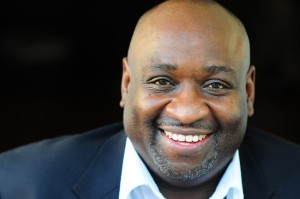Father’s Day is winding down here in the Central Time Zone, but I’m grateful today also falls on the summer solstice. It is the longest day of the year so lots of sun & vitamin D.
From here on out the darkness comes just a little sooner…Kind of like this past week.
Dear Readers, I’m grateful to turn over this little space of the blogosphere to a mentor and friend, Leroy Barber. He has a great story of how two black men, one Latino, and one white man found me wandering the woods near Appalachia.
*********************************
I don’t know what Father’s Day is like for you but for me it’s been a place of hurt when I reflect on my dad. It also has become a place of joy as my children encourage and honor me. I am learning to balance the two places and learn. I am the kid who on Father’s Day bought cards for my mom. I am now the guy whose wife and kids lavish me with love.
I have documented well my lack of relationship and anger with my dad, but today as I reflect the anger has subsided, only a twinge here and there remains, which clear the thoughts. The power of forgiveness washes over me, fills my heart, and flows from my eyes as I thank God for relieving me. Thoughts in this space are precious and cleansing.
My dad did two things I can clearly remember. He taught me to work; he would force me up Saturday mornings and daily during the summer to go with him on his construction jobs. Up at 6am to load the truck while he ate breakfast. These mornings helped me acquire a work habit by the age 11 that I would not have had if it were not for him. The other thing that’s clear to me today is kinda weird, but my dad was a tough guy. He had a rule: if someone hits, you hit them back. He meant this. Anytime I found myself in a fight and dad was there watching, I had to defend myself. This made me a pretty dirty fighter, picking up things to hit people so I could end the fight as soon as possible. Two lessons – work and fight – are clear in my head. Dad drove those deep into my consciousness, and both over time have served well.
My present life calls for crazy hours, long weeks, and little time off. I work, and I work hard. I have to work at being balanced in life so that work doesn’t own me but is used to bring honor to my family and to God.
My current life calls for me to fight with and for people who may be vulnerable for one reason or another. I fight for justice, and I fight hard. I have to constantly check motives in this space to make sure I am not reacting to people because they “hit” me. The streets can ruse up fast in me sometimes and picking up the preverbal stick is a temptation to avoid.
So for kids like me, whose dads disappoint, there is hope that one day small lessons, even the ones that are quite dysfunctional, can be turned into something beautiful in your life. My dad left when I was 11 or 12 years old, and I am now 50, still recovering. Have grace for yourself and others in the process. I am the first to admit it’s not easy, quite confusing and may take a long time to process.
But the road towards healing, starts with forgiveness.
*********************************
 Leroy Barber has dedicated more than 25 years to eradicating poverty, confronting homelessness, restoring local neighborhoods, healing racism, and living what Dr. King called “the beloved community.”
Leroy Barber has dedicated more than 25 years to eradicating poverty, confronting homelessness, restoring local neighborhoods, healing racism, and living what Dr. King called “the beloved community.”